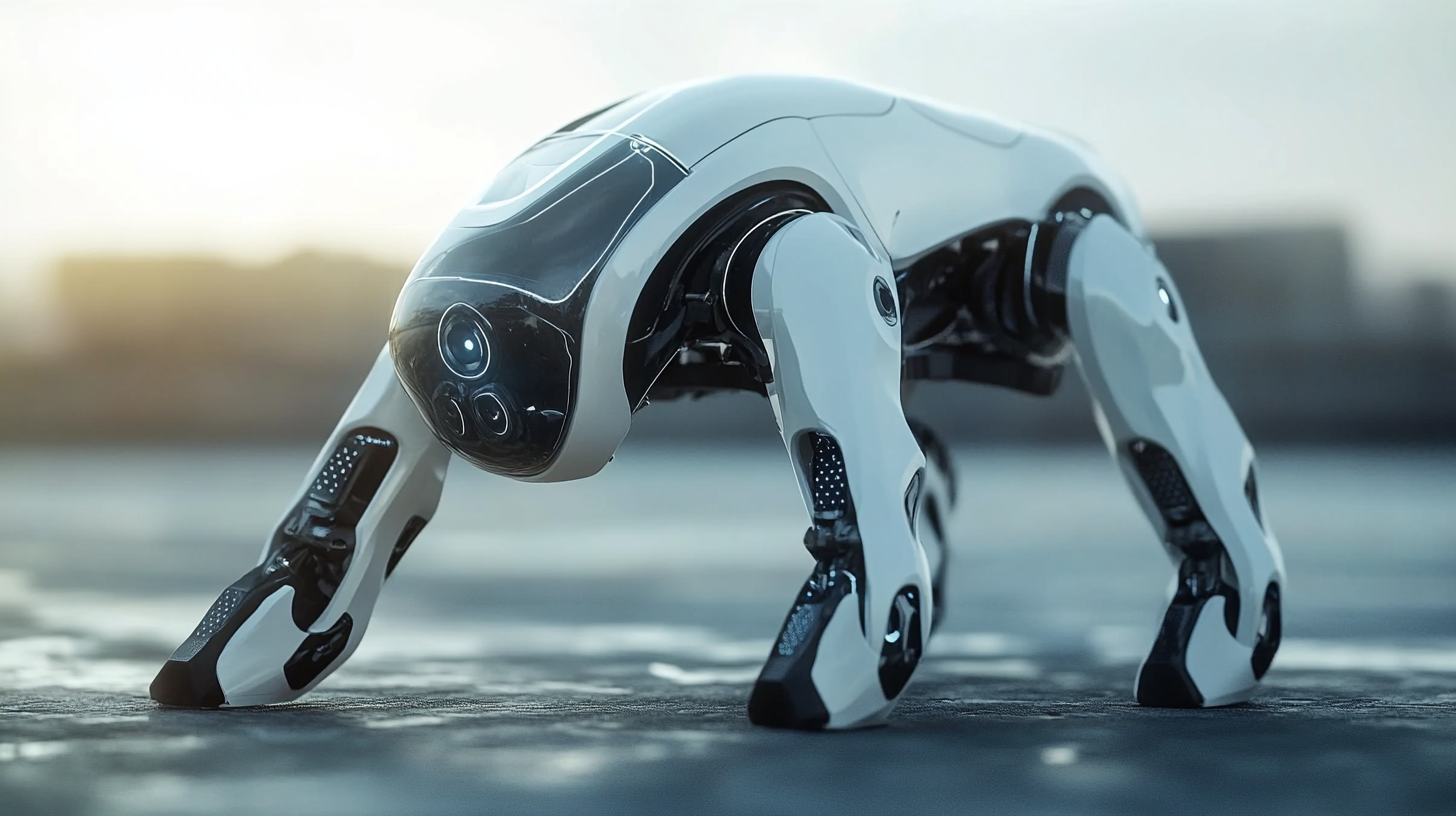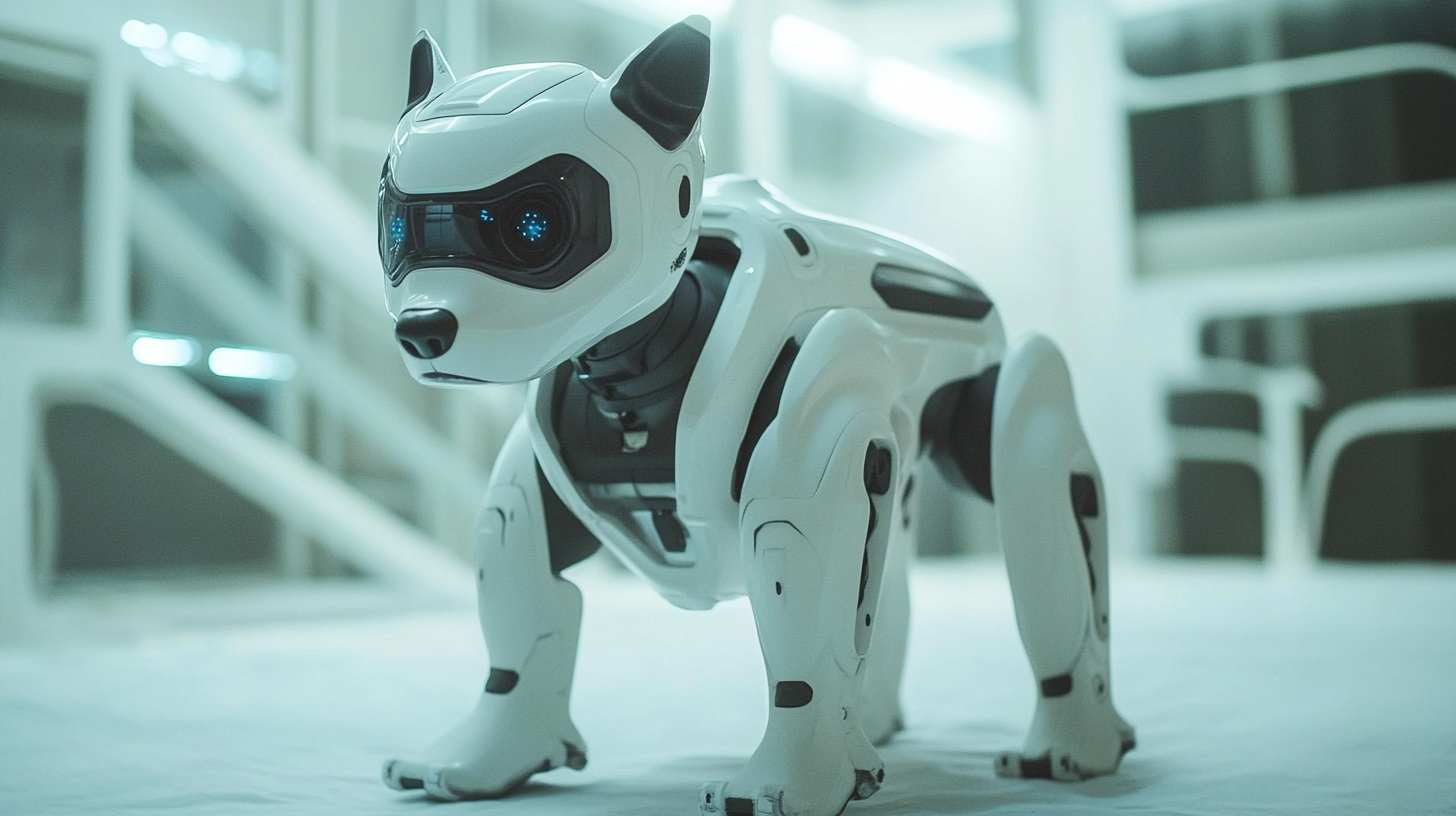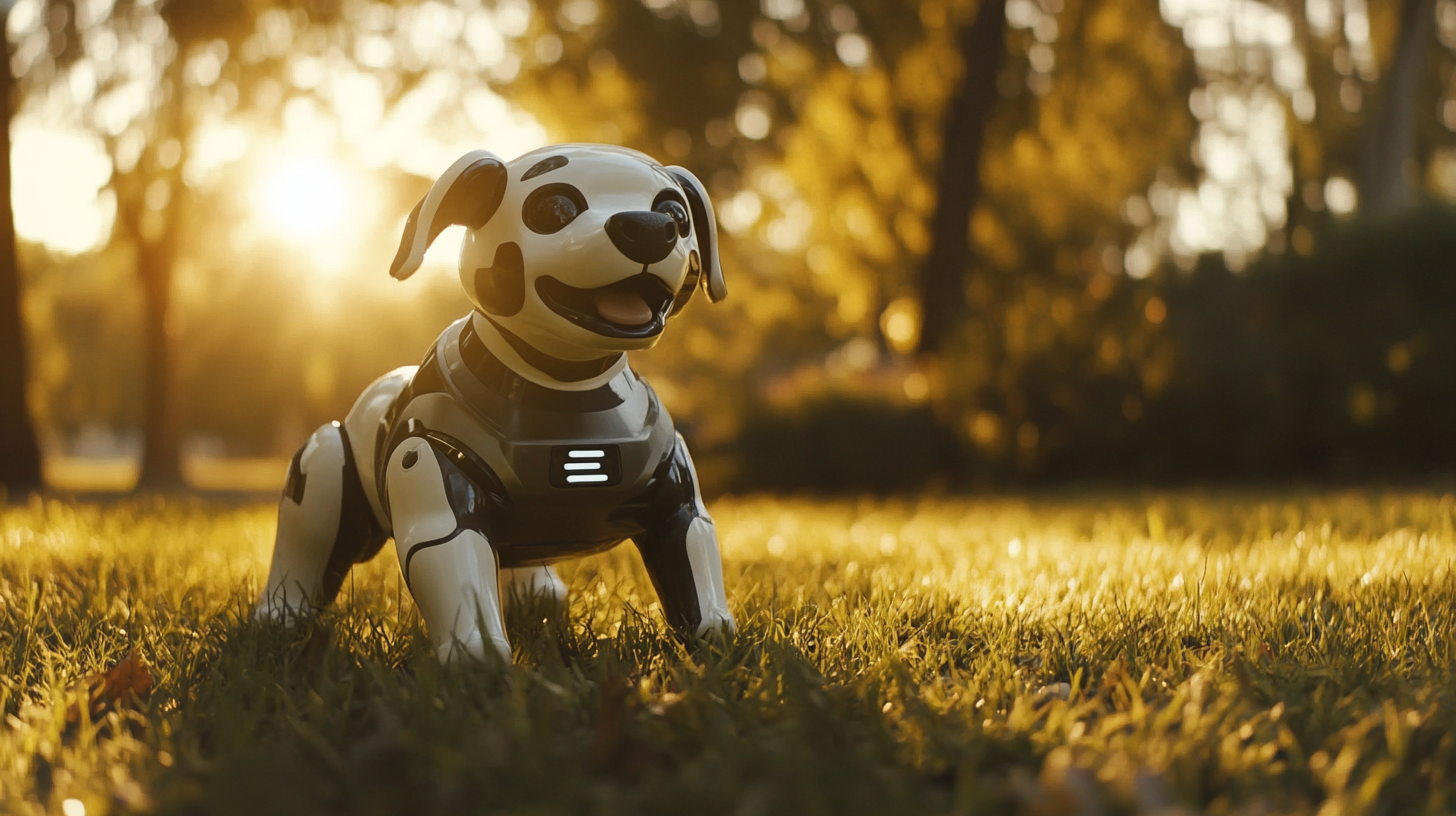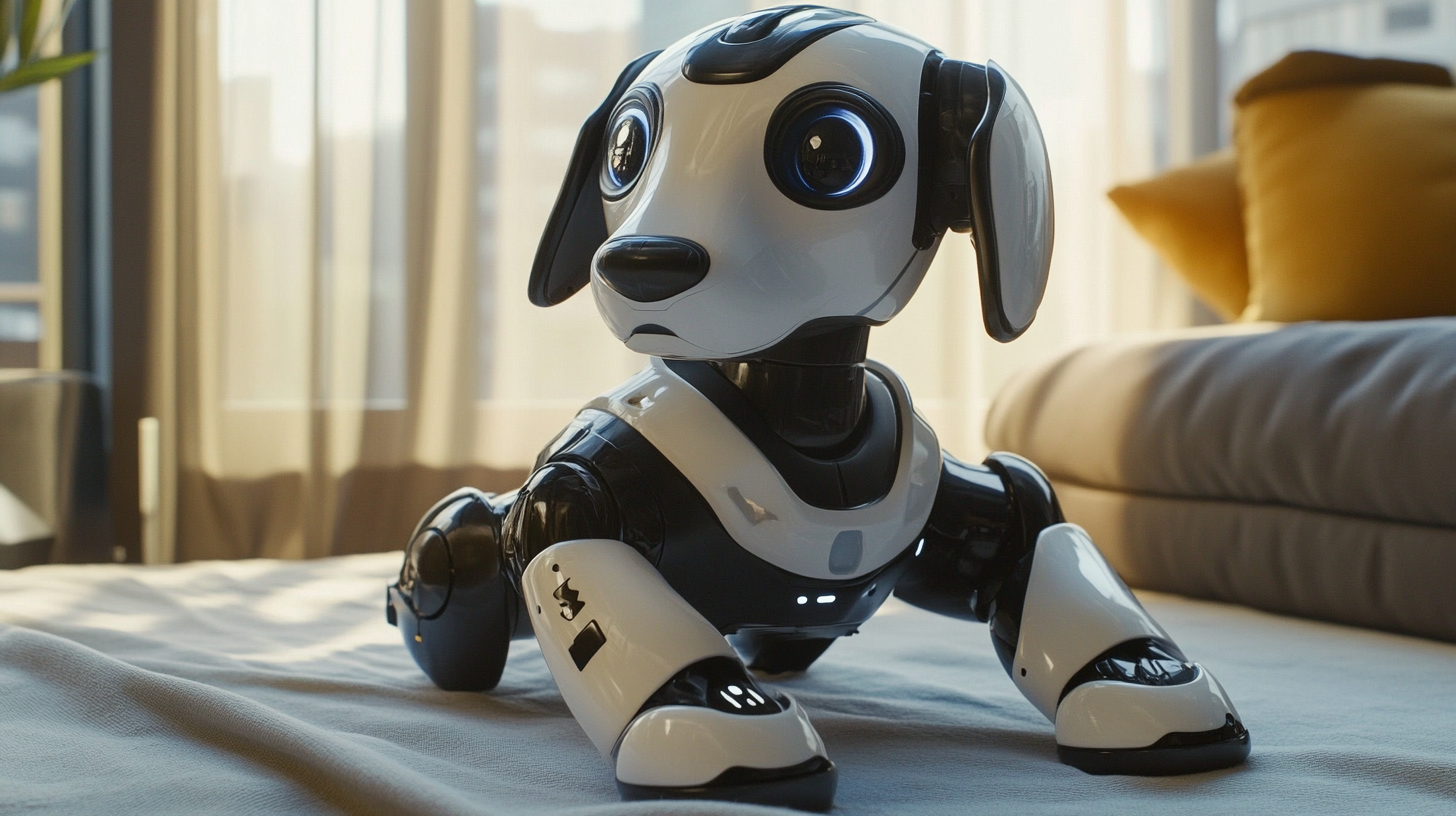Exploring the Future: How Remote Control Robot Dogs Will Transform Play in 2025
As we venture into 2025, the realms of technology and play are poised to intertwine in ways previously confined to the imagination. One of the most exciting innovations at the forefront of this transformation is the Remote Control Robot Dog. These mechanical companions are not just toys; they represent a new frontier in interactive play, blending robotics with playtime to create unique experiences for children and adults alike. With advancements in artificial intelligence and sensor technology, these robotic pets are set to redefine companionship and entertainment in households around the globe.
The rise of the Remote Control Robot Dog signifies more than just a new product on the market. It highlights a shift in how we perceive play, moving towards more engaging and educational interactions. As these robotic canines become more sophisticated, they will not only entertain but also teach essential skills such as problem-solving and empathy. This blog will explore the exciting developments surrounding Remote Control Robot Dogs, how they will influence play dynamics, and their potential to enrich our lives in the years to come. Join us on this journey into the playful future!

The Rise of Remote Control Robot Dogs: A New Era in Playtime
The rise of remote control robot dogs heralds a significant shift in the landscape of playtime, particularly as we approach 2025. As families increasingly seek engaging and interactive forms of entertainment, the market for robotic pets is expected to flourish. According to a recent report by MarketsandMarkets, the global robotic toys market is projected to reach USD 3.3 billion by 2025, growing at a CAGR of 12.3% from 2020. This growth is fueled by the increasing demand for innovative and tech-savvy play experiences, especially among younger generations.
Remote control robot dogs, with their lifelike movements and interactive features, are at the forefront of this trend. These advanced toys not only promote imaginative play but also introduce children to basic programming and robotics concepts, laying the groundwork for future STEM learning. A study published in the Journal of Play and Learning suggests that engaging with robotic pets enhances social interaction skills among children, as they learn to care for and interact with their robotic companions.
Moreover, the integration of AI and machine learning in robot dogs is revolutionizing the playtime experience. These enhancements allow for real-time interaction and adaptability, making each play session unique. As highlighted in a report by the Consumer Technology Association, nearly 75% of parents believe that technology can enhance their children's playtime and learning experiences. With this acceptance and the growing market, remote control robot dogs are set to become a staple in homes, ensuring that playtime in 2025 is not just fun, but also intellectually stimulating.

Technological Advancements Driving Robot Dog Development
As we delve into the realm of play in 2025, technological advancements in robot dogs are set to redefine how we interact with technology in recreational spaces. China is making significant strides in the robotics sector, aiming to lead globally with innovations that encompass a broad spectrum of applications. From patrolling parks in Beijing to showcasing their capabilities during large-scale military exercises, these robotic companions are transforming their roles from mere playthings to sophisticated tools for both security and entertainment.
Robotic dogs are increasingly becoming a part of our everyday environments, as seen in the Beijing Economic-Technological Development Area where they dutifully patrol parks. This move not only enhances safety but also serves as a stepping stone for children and families to engage with robots in a playful and imaginative context. With developments like these, the barriers between play and technology are blurred, opening up new possibilities for interactive and educational experiences with robotic dogs.
Furthermore, the integration of artificial intelligence in these robotic entities enhances their interactivity, making them more responsive and engaging. The dance of technological advancement continues, as innovations not only improve functional capabilities but also allow for creative expressions, such as dancing robots that captivate audiences. As we look ahead to 2025, these robotic dogs are poised to be at the forefront of play, combining entertainment with cutting-edge technology in ways we have yet to fully imagine.

Enhancing Child Development: The Educational Benefits of Robot Playmates
As we look towards 2025, the emergence of remote control robot dogs promises to revolutionize the way children engage in play. These robotic companions are more than just entertainment; they hold immense potential to enhance child development through interactive and educational experiences. Studies show that children learn best when they are actively engaged, and robot playmates can provide a dynamic platform for this engagement.
One of the key educational benefits of robot playmates lies in their ability to foster essential skills such as problem-solving and critical thinking. Children can program their robot dogs to perform various tasks, encouraging them to think creatively and analytically as they devise solutions to challenges. Furthermore, the element of play allows them to experiment in a low-stakes environment, nurturing their confidence and willingness to take risks.
Additionally, remote control robot dogs can cultivate social skills by encouraging teamwork and collaboration. When children play together with these robotic companions, they often engage in discussions about strategies, share ideas, and work in tandem to navigate obstacles. This collaborative play not only enhances their ability to communicate effectively but also promotes empathy and understanding as they learn to respond to their peers’ input and needs.
Incorporating technology into playtime is not just about entertainment; it is a powerful tool for promoting holistic child development. The interplay between fun and education provided by remote control robot dogs sets the stage for a new era of learning, where children acquire vital life skills while having a blast. As we approach 2025, the integration of these innovative playmates will surely reshape how we understand the relationship between play and education.

The Social Impact of Robot Dogs on Children's Interaction and Relationships
As we look towards the future of play, the introduction of remote control robot dogs is set to revolutionize the way children interact with technology and with each other. These intelligent companions will not just serve as entertainment; they will play a significant role in shaping social dynamics among children. By fostering imaginative play and creating opportunities for collaboration, robot dogs can strengthen friendships and encourage teamwork as children navigate shared play experiences.
The unique design and capabilities of robot dogs will provide a bridge for shy or socially anxious children, making it easier for them to engage in group activities. By providing a non-threatening point of interaction, these robotic pets can help children develop social skills, enhance their emotional intelligence, and build relationships both with their electronic companions and with their peers. Children will learn to collaborate in training and controlling these robots, instilling essential communication skills while they bond over a shared interest.
Moreover, the presence of robot dogs in play scenarios can teach children about empathy and responsibility. As they simulate routines of care and interaction with their robot companions, children will gain insights into nurturing behaviors that extend beyond the digital realm. This shift in play dynamics has tremendous potential for positively impacting children’s emotional development and relationships, making remote control robot dogs an exciting evolution in the landscape of childhood play.
Future Trends: What to Expect in the World of Remote-Controlled Pets
As we look ahead to 2025, the landscape of play is set to undergo a remarkable transformation, particularly in the realm of remote-controlled pets. These technologically advanced companions are more than just toys; they represent the convergence of technology and play, offering children and adults alike a novel way to engage with animals that are both interactive and customizable. The future of play will see remote-control robot dogs becoming a common fixture in households, providing not just entertainment but also teaching valuable lessons about care and responsibility.
One of the key trends we can expect is the integration of artificial intelligence into these robotic pets, enabling them to respond to user commands and learn from their environment. Imagine a robot dog that can perform tricks, respond to voice commands, and even adapt its behavior based on the emotions of its owner. This level of interactivity will foster deeper connections between humans and their robotic companions, allowing for a more enriching play experience. Furthermore, these innovations will likely promote social interaction, as children can engage in collaborative play scenarios, navigating challenges together with their remote-controlled pets.
Additionally, advancements in remote-control technologies will enhance the user experience, making it easier and more intuitive to control these robotic creatures. Features like augmented reality (AR) could take play to another dimension, allowing users to interact with their robot dogs in virtual environments or participate in games that merge the physical with the digital. As these technologies evolve, the potential for growth in this sector hints at a future where play is not only a form of entertainment but also a gateway to learning and emotional development.













